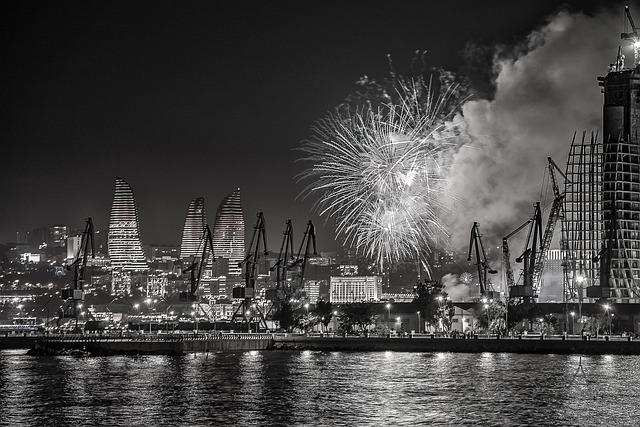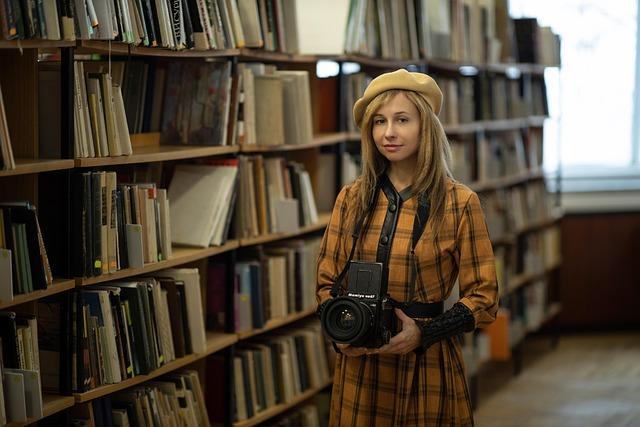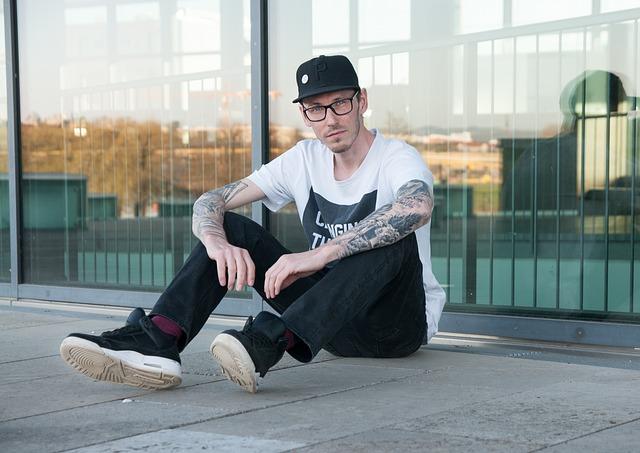Azerbaijan’s Imprisoned Women Journalists: A Silent Crisis Unfolding
In recent years, Azerbaijan has drawn international attention for it’s troubling human rights record, notably regarding freedom of the press. Among those most affected are women journalists, whose work has become increasingly perilous in a landscape marked by censorship, intimidation, and legal persecution. According to a recent report by Human Rights Watch, countless female reporters have faced harassment, imprisonment, and even violence for daring to challenge the status quo and expose human rights violations within the country. This article delves into the harrowing stories and systemic issues surrounding Azerbaijan’s incarcerated women journalists, highlighting the broader implications for press freedom and gender equality in a nation grappling with authoritarianism.It is crucial to recognize their plight not only as a matter of justice but also as a bellwether for the state of democracy in Azerbaijan and beyond.
Azerbaijan’s Crackdown on Press Freedom and Women Journalists
Azerbaijan has witnessed a troubling trend in recent years, characterized by increasing repression of press freedom, particularly targeting women journalists who dare to challenge the status quo. The government has employed a variety of tactics to silence dissenting voices, including selective prosecutions, arbitrary detention, and violent intimidation. this targeted persecution has led to a chilling atmosphere where many aspiring journalists are afraid to speak out or report on critical issues, fearing for their safety and future. The repercussions of such actions extend beyond individual cases; they undermine the vrey fabric of democratic discourse and diminish the public’s access to diverse viewpoints.
Among the most grievous cases are female journalists who, despite immense risks, continue to advocate for openness and accountability. Thes brave women face a labyrinth of obstacles that include not only the threat of imprisonment but also societal stigma and discrimination. The following key issues illustrate the challenges they confront:
Imprisonment of journalists: Numerous women journalists have been unjustly sentenced to prison, often on fabricated charges.
Harassment and violence: Many report experiencing harassment and physical threats aimed at deterring their work.
Lack of support: Institutional support for women journalists is often inadequate, leaving them vulnerable.
These elements contribute to a unfriendly environment that stifles journalistic integrity and women’s voices within the media landscape. The international community must prioritize the issue, advocating for the release of imprisoned women journalists and calling for the Azerbaijani government to uphold its obligations to protect freedom of expression.

Profiles of Imprisoned Women Journalists: Struggles and Stories
In Azerbaijan, the plight of imprisoned women journalists reflects a grim reality where freedom of expression is stifled under authoritarian rule. Among those incarcerated are courageous women who have dedicated their lives to uncovering the truth, often at great personal risk. These journalists face not only the hardships of prison life but also the psychological toll of being separated from their families and communities. Their stories are as varied as their backgrounds, each illustrating the profound impact of state repression on their lives and the broader journalism landscape.
For instance, Elina K. was known for her incisive reporting on government corruption before she was silenced. In her feature articles, she often highlighted the struggles of marginalized communities, making her a target for those in power. Meanwhile, Leyla M.,who co-founded an independent news outlet,has experienced relentless persecution for her investigatory work surrounding environmental issues and corporate malfeasance. The struggles of these women resonate beyond their immediate circumstances; they symbolize the ongoing fight for press freedom in Azerbaijan. The following table summarizes key profiles of these journalists:
Name
Focus of Work
Status
Elina K.
Government Corruption
Imprisoned
Leyla M.
Environmental Issues
imprisoned
Zara F.
Human Rights
Imprisoned
Ayla A.
Social Affairs
Imprisoned

The Legal Framework: How Laws Are used to Silence dissent
The legal landscape in Azerbaijan is characterized by a series of laws that ostensibly protect national security and public order, but in practice, they frequently enough serve as instruments to suppress dissent and limit freedoms. Journalists, particularly women, find themselves ensnared in a complex web of regulations that criminalize their work and stifle critical voices. This dynamic is further exacerbated by vague definitions of terrorism, defamation, and incitement, allowing authorities to wield these laws selectively against those who challenge the status quo. As a result, many journalists face charges that are not only baseless but also serve to reinforce a culture of fear surrounding independent media.
Examples of these repressive measures include:
Arbitrary Detentions: Many women journalists are detained on trumped-up charges,with little evidence to support the allegations.
Censorship Laws: Regulations that limit what can be published, effectively silencing critiques of the government.
Intimidation and Harassment: Continuous threats and physical harm act as a deterrent for other journalists considering covering sensitive topics.
Moreover, the judicial processes often fail to uphold the principles of justice, as courts frequently act in concert with government directives to ensure convictions of dissenters. this systematic oppression not only punishes individuals but also sends a chilling message to the broader society, signaling that anyone who dares to question or criticize state actions could face similar repercussions.

Human Rights Violations: analyzing the Impact on Society
The ongoing plight of women journalists imprisoned in Azerbaijan highlights grave human rights violations that resonate deeply within society. These women, often targeted for their brave reporting on political corruption and social injustices, face severe repercussions, not only for their work but also for their identities. The implications extend beyond individual suffering, affecting public trust in the media and hindering the free flow of details. Communities reliant on honest journalism for empowerment are left in disarray, plagued by misinformation and fear, stifling social progress and fostering an environment where dissent is systematically crushed.
The repercussions of detaining these journalists ripple throughout societal structures, prompting a culture of silence and suppression. Key impacts include:
Reduction in the diversity of voices in media.
Increased self-censorship among emerging journalists.
Erosion of community engagement in civic issues.
Heightened risks for defenders of human rights.
Impact
Description
Media Trust
The public’s trust in media is eroded, leading to skepticism towards news outlets.
Freedom of Expression
Active suppression of voices creates a chilling effect on free speech.
Social Justice
Critical issues remain unaddressed due to lack of coverage and advocacy.

International Response and Advocacy: Call to Action for Justice
The plight of imprisoned women journalists in Azerbaijan signals a worrying trend towards the suppression of free speech and an alarming disregard for human rights. *International response* has been tepid, frequently enough overshadowed by geopolitical interests that prioritize diplomatic relationships over the welfare of individuals. It is our collective obligation to amplify these voices and insist on accountability through various actions,including:
Social Media Campaigns: Use platforms like Twitter and Instagram to raise awareness about their cases and spread the hashtag #FreeAzerbaijanJournalists.
Policy Advocacy: Pressure governmental bodies and international institutions to impose sanctions on officials responsible for these human rights violations.
Collaboration with NGOs: Work alongside local and global non-governmental organizations to provide legal support and resources for the released journalists.
Public Demonstrations: Organize rallies and protests to draw attention to their injustices and press for reforms in Azerbaijan’s media policies.
Furthermore, as part of a coordinated global front, stakeholders must pursue a structured dialog with Azerbaijani authorities, demanding transparency and protection for journalists. Below is a summary table showcasing recent initiatives aimed at supporting imprisoned women journalists:
Initiative
Description
Status
global Campaign Launch
A multi-national advocacy campaign focusing on the release of detained journalists.
Ongoing
Petition Drive
A petition calling for international intervention with thousands of signatures gathered.
Completed
Media Accountability Forum
A forum bringing together international journalists to discuss strategies for safer reporting.
Upcoming

Strategies for Supporting Press Freedom and Protecting Journalists
To foster an environment where journalists can operate freely and without fear of persecution, it is crucial to implement multifaceted strategies that address both systemic and immediate threats. International advocacy plays a vital role in exerting pressure on governments that curb press freedom. Organizations can mobilize global awareness through campaigns, leveraging social media platforms and customary media to spotlight cases of imprisoned journalists. Additionally, partnerships with local and international NGOs can enhance support systems for journalists facing harassment, ensuring they have access to legal assistance and psychological support.to fortify these efforts, establishing emergency funds dedicated to journalists in crisis can provide critical resources for those who fear for their safety or who have been unjustly imprisoned.
moreover,fostering collective action among journalists is essential in creating a unified front against repression. This can be achieved through the establishment of professional networks where journalists can share information about threats and exchange best practices for ensuring their safety. Normalizing information-sharing creates a support system among journalists that can definitely help mitigate risks and promote solidarity. Furthermore, media literacy programs aimed at the public can enhance understanding of the vital role of journalism in democracy, urging communities to advocate for their rights. Lastly, educational initiatives that emphasize ethical journalism and the protection of sources will cultivate a new generation of journalists equipped to navigate challenging environments and uphold press freedom.
Concluding Remarks
As the plight of imprisoned women journalists in Azerbaijan continues to unfold, the stark realities they face serve as a chilling reminder of the ongoing struggle for freedom of expression and human rights in the region. Organizations like Human Rights Watch shine a crucial spotlight on these injustices,advocating for accountability and urging international attention to the violations that silence these brave voices. The resilience of these women, even in the face of oppressive regimes, illustrates the critical need for a global commitment to defending press freedom and human rights. As we reflect on their stories, it is indeed imperative for governments, activists, and citizens alike to remain vigilant and proactive in supporting the rights of all journalists, particularly those who brave critically important risks to illuminate the truths that many would prefer to keep in the dark. Only through concerted action can we hope to foster an environment where freedom of the press is celebrated, and where the voices of those who courageously tell the stories of their communities are not only heard but protected.
—-
Author : Asia-News
Publish date : 2025-03-17 22:05:29
Copyright for syndicated content belongs to the linked Source.